
Cuban born NY pianist David Virelles documents the musicians of his birthplace, Santiago de Cuba, home to musical styles such as son, changui, nengon, and conga, in two distinct projects: Volume I, where Virelles introduces Orquesta Luz de Oriente tracing the roots of the Cuban big band tradition; and Volume II, reinterpreting the piano music of iconic pianist Antonio Maria Romeu.
Out of Stock
Quantity in Basket: None
Log In to use our Wish List
Shipping Weight: 3.00 units
Sample The Album:
David Virelles-piano, chorus
Roman Filiu-alto saxophone
Baudelis Rodriguez-baritone saxophone
John Benitez-bass
Jose Angel Martinez-bass
Emilio Despaigne Robert-chorus
Jose Aquiles Virelles-chorus
Lazaro Bandera-congas
Alejandro Almenares-lead vocals
Emilio Despaigne Robert-lead vocals
Alejandro Almenares-requinto guitar, chorus
Rene La Flor Dominguez-tenor saxophone
Rafael Abalos-timbales, guiro, chorus
Abel Virelles-trumpet
Click an artist name above to see in-stock items for that artist.
UPC: 808713007824
Label: Pi Recordings
Catalog ID: Pi 78
Squidco Product Code: 26608
Format: CD
Condition: New
Released: 2018
Country: USA
Packaging: Cardboard Gatefold
Recorded at Estudios Siboney, E.G.R.E.M., in Santiago De Cuba, Cuba, on March 1st - 7th, 2017.
"Igbó Alákọrin (a phrase in Yoruba which can be loosely translated as The Singer's Grove) is the realization of pianist David Virelles's long-held dream to document the under-sung musicians of his birthplace, Santiago de Cuba. Virelles, who was named the #1 Rising Star Jazz Pianist in the 2017 Downbeat Critics Poll, is one of the most in-demand pianists on the contemporary jazz scene, recording with the likes of Henry Threadgill, Chris Potter, and Tomasz Stanko. He also has four prior releases under his own name, including Continuum, which topped the New York Times best album list for 2012. Legendary Cuban pianist Chucho Valdés calls Virelles "an innovator and a perfectionist, a young virtuoso who is the most creative and advanced of our jazz pianists."
The picturesque town of Santiago in the Oriente region of southeastern Cuba has historically been an important breeding ground for music on the island. It's the home to musical styles such as son, changüí, nengón, conga, as well as traditions inherited from Haiti. Since leaving home in 2001, each time Virelles returned he would make it a point to seek out and reconnect with the elders of Santiago's rich musical tradition, many of whom he knew as family friends through his parents who are also musicians. According to Virelles, "Growing up, I never really knew them as the super-important musical figures that they are; just as members of my extended family. It wasn't until after I immigrated that my perception of my own culture expanded partly because, ironically, I had more access to historic documents here than I ever did in Cuba. Now I feel a responsibility to further their legacy through exposing people to their work, as well as through my original contemporary work. I feel extremely fortunate to have been able to assemble for this album some of the legends, all of whom are still at the peak of their craft. They have never received recognition beyond their Santiago community, but they remain arguably amongst the last living resources from our music's golden era. After years of thinking and planning, I am very excited that this dream has finally become a reality."
Igbó Alákọrin is made up of two distinct projects: Volume I - David Virelles Introduces Orquesta Luz de Oriente traces the roots of the Cuban big band tradition and encompasses various genres/styles associated with the rich musical legacy of Santiago: danzón Oriental, chepinsón, bolero and trova. In particular, it was conceived to showcase the music of Electo Rosell (Chepin, of the legendary Chepín-Chovén Orchestra) and Mariano Mercerón, who were important pioneers in the percussion-propelled Cuban big band sound of the 1930s. Their work was inspired by African-American groups, yet it had very profound rhythmic connections to folkloric lineages native to the Oriente region of Cuba. In its heyday, the Chepín-Chovén Orchestra was a fixture at many venues, including the sociedad de mulatos Luz de Oriente. This society club, which was located in a building still standing in Santiago, is the inspiration behind the name of Virelles's ensemble. It features the voices of Emilio Despaigne Robert, a veteran sonero (lead vocalist) of the Santiago group Los Jubilados, and Alejandro Almenares, who is also featured on his sublime requinto guitar. Many consider Alejandro - the son of trova legend Ángel Almenares - the last of the old style trovadores, a lineage dating back to the 19th century with deep roots in Santiago. The younger Almenares learned his craft at informal home gatherings from his father and his father's friends, which included Sindo Garay, one of the four greats of trova. The rest of the band include José Ángel Martínez (bass), who has recorded with Buena Vista Social Club's Eliades Ochoa; Lázaro Bandera (congas) is the director of La Conga de Los Hoyos, one of Santiago's foremost carnival music groups; Román Filiú (alto saxophone) who originally made a splash in Havana with Isaac Delgado and Chucho Valdés' Irakere in the 1990s and has since moved to New York where he has recorded with the likes of Henry Threadgill and David Murray as well as leading his own groups; René "La Flor" Domínguez (tenor saxophone), who has been a mainstay of the Santiago music scene for the last half century; Baudelis Rodríguez (baritone saxophone), a young talent who plays with the world-renowned Santiago-based Magic Sax Quartet; Abel Virelles (trumpet), David's younger brother who learned about Cuban styles of trumpet playing from the late Inaudis Paisán, who played with Chepín; José Aquiles Virelles (chorus), David's father who is a prominent nueva trova singer and composer with a career spanning 40 years; and Gabriel Montero (pailitas criollas, claves) who is a percussionist in the Grammy-winning Septeto Santiaguero.
On Volume II - Danzones de Romeu at Café La Diana, Virelles reinterprets the piano music of the iconic early-20th Century pianist/composer Antonio María Romeu, exploring his practice of playing danzónes accompanied only by güiro. The title refers to the legendary Café La Diana in Havana at which Romeu regularly performed starting the turn of the 20th Century. Virelles explores Romeu's signature harmonic, melodic and rhythmic devices, as well as specific left hand figurations on the piano. He is accompanied by the master güirero Rafael Ábalos, a danzón specialist and veteran of Oriente charangas such as Típica Juventud and Estrella De La Charanga. Ábalos has been an invaluable resource in realizing this entire project, hipping me to long lost and forgotten recordings, hooking up our rhythm team and passing on secrets of this much talked about but forever mystical genre of Cuban music, the danzón.
A product of deep historical and cultural research, Igbó Alákọrin is another chapter in Virelles's ongoing pursuit to create music that transcends the boundaries between the folkloric and contemporary to reveal an essence beyond any genre. It's also a homecoming that documents a collaboration with roots in family, community and culture. The sessions were recorded at Santiago's E.G.R.E.M. - Siboney studio, where Virelles grew up attending his father's late night recording sessions and made some of his first professional recordings. Unusual for a modern recording, all the musicians played in one room, and one immediately senses the music's urgency and power, with the instruments blending in a way that can only be achieved in that setting. The album has the feeling of having entered a time warp, juxtaposing music from a long bygone era that reflects Virelles's desire to preserve contextual, historical and cultural nuances with improvisational elements that reflect Virelles's experience in the New York jazz community. As Chucho Valdés says: "David's work is immersed in research. He knows our African roots with depth. Tradition and avant-garde come together in this offering of the highest order. What a marvel! Thank you, David, for making us happy and proud, and for updating our traditions." "-Pi Recordings
Artist Biographies
• Show Bio for David Virelles "Cuban-born pianist David Virelles grew up in a musical home, his father a singer-songwriter and his mother a flutist and music teacher. Even though classically trained at the conservatory, he also heard many types of music in the culturally rich Santiago while growing up. Eventually, Virelles also discovered Bud Powell, Thelonious Monk and Andrew Hill, and started studying the connections between this music and Cuban rhythms. In 2003, David became the first recipient of the Oscar Peterson Prize, presented by Peterson himself. Since his arrival to NYC, he has appeared on live concerts and recordings with musicians as diverse as Steve Coleman, Mark Turner, Henry Threadgill, Andrew Cyrille, Chris Potter, Wadada Leo Smith, Tom Harrell, Milford Graves and Ravi Coltrane. David's 2012 release Continuum (Pi Recordings) united Andrew Cyrille, Ben Street and Román Díaz. This album ended on many "Best Of The Year" lists, including The New York Times. Since then, he has released three more albums on the Munich label ECM to critical acclaim, documenting a wide sonic range - Mbóko, Antenna, and his latest Gnosis." ^ Hide Bio for David Virelles • Show Bio for Roman Filiu "New York-based Roman Filiú has been a saxophonist, bandleader, composer for over 20 years. Born and raised in Santiago de Cuba, he has played, recorded, and toured worldwide with a great variety of artists. He is currently a member of Henry Threadgill´s Ensemble Double Up, and leads several groups himself such as Quarteria, which features David Virelles, Ralph Alessi, Matt Brewer, Dayna Stephens, Yusnier Sánchez, and Craig Weinrib as well as the Roman Filiú Quartet with Billy Hart, David Virelles, and Thomas Morgan. Among his many collaborations, Román has played in Chucho Valdés´Irakere (Grammy Award nominated Babalú Ayé, Grammy Award winning New Conceptions), has been the musical director of David Murray´s Big Band and has played with outstanding musicians Andrew Cyrille, Gonzalo Rubalcaba (Grammy Award nominated Antiguo), Steve Coleman Dafnis Prieto, Milford Graves, Miguel Zenón, Doug Hammond, Nasheet Waits, Michele Rosewoman, Omara Portuondo, Marcus Gilmore, Lázaro Ross, Alain Pérez, Iván Melón Lewis, Román Díaz, Damion Reid, Pablo Milanés, Liberty Ellman, Stephan Crump, Pepe Rivero, Adam Rogers, Rez Abassi, Roy Hargrove, and Chano Domínguez to name a few. The musician has been a recipient of the Jazz Gallery Commission Series, the Langnau Jazz Fest Artist in Residence, the Chamber Music America New Jazz Works Award, and the Lucas Artist Residency. He has established himself as a prominent and innovative composer through his work for numerous small ensembles and has written pieces for string quartet, solo piano and saxophone quartet. Roman has also released the albums Blowin' Reflections and Musae, which were praised by the press for their quality and depth." ^ Hide Bio for Roman Filiu
11/20/2024
Have a better biography or biography source? Please Contact Us so that we can update this biography.
11/20/2024
Have a better biography or biography source? Please Contact Us so that we can update this biography.
Track Listing:
1. Bodas De Oro 4:51
2. El Rayaero 5:23
3. Grato Recuerdo 3:22
4. Echa Pa' Alla 3:46
5. Canto A Oriente 2:49
6. Un Granito De Arena 4:38
7. Sube La Loma, Compay 5:24
8. Cosas De Mi Cuba 2:49
9. Ojos De Sirena 2:47
10. Tapame Que Tengo Frio 4:19
11. Tira La Cuchara Y Rompe El Plato 5:32
12. Mojito Criollo 4:01
13. Mares Y Arenas 3:08
14. Tres Lindas Cubanas 6:07
Improvised Music
Jazz
NY Downtown & Metropolitan Jazz/Improv
Large Ensembles
Pi Records
Melodic and Lyrical Jazz
Song Based Music
Piano & Keyboards
Search for other titles on the label:
Pi Recordings.


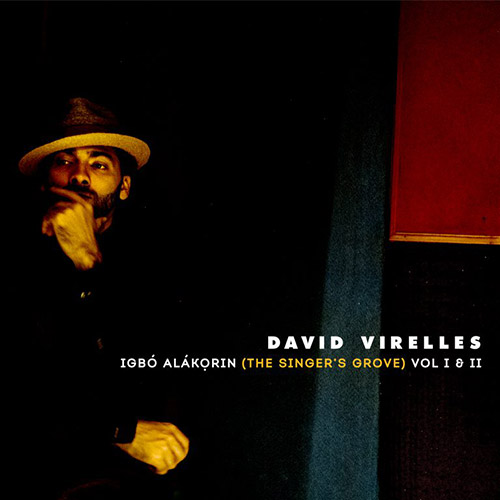

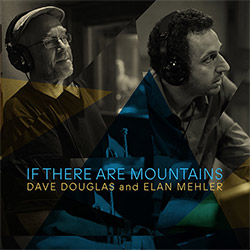
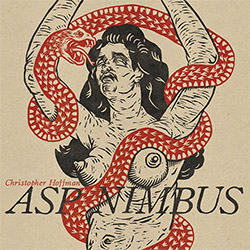


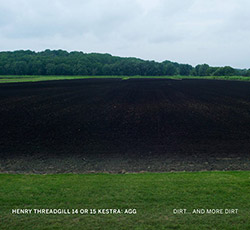

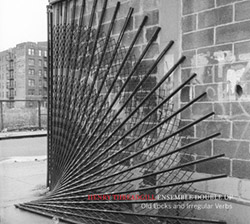

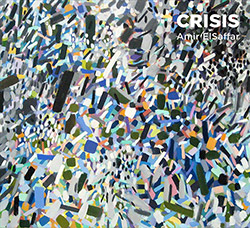
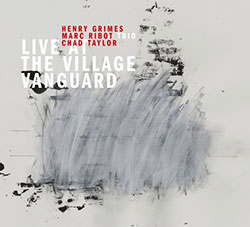


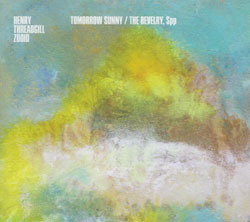
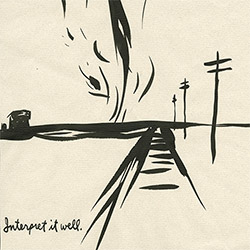
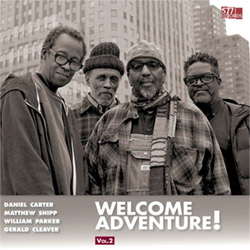
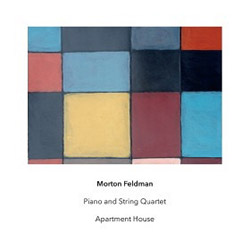

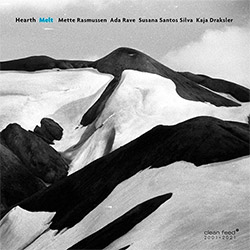
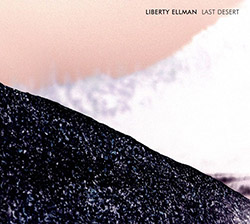

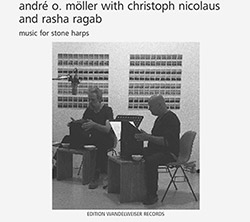
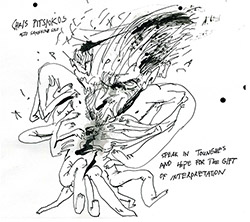


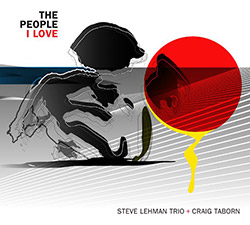


![Guy, Barry / Ken Vandermark: Occasional Poems [2 CDs]](https://www.teuthida.com/productImages/misc4/34849.jpg)
![Novoa / Carter / Mela Trio: Vol.1 [VINYL]](https://www.teuthida.com/productImages/misc4/35236.jpg)


![Elephant9 : Mythical River [VINYL]](https://www.teuthida.com/productImages/misc4/34624.jpg)
![Evans, Peter (Evans / Eldh / Black): Extra [VINYL]](https://www.teuthida.com/productImages/misc4/35279.jpg)

![McPhee, Joe: Straight Up, Without Wings [BOOK]](https://www.teuthida.com/productImages/misc4/35454.jpg)
![Jeck, Philip: rpm [2 CDs]](https://www.teuthida.com/productImages/misc4/35455.jpg)













![Barker / Parker / Irabagon: Bakunawa [VINYL]](https://www.teuthida.com/productImages/misc4/35533.jpg)
![Blaser, Samuel / Marc Ducret / Peter Bruun: Dark Was The Night, Cold Was The Ground [VINYL 10-inch]](https://www.teuthida.com/productImages/misc4/35492.jpg)








![Warren, Kenny (Warren / Hoffman / Ellman): Sweet World [VINYL]](https://www.teuthida.com/productImages/misc4/35451.jpg)




![Blake, Ran / Dave Knife Fabris: Live Amsterdam 2006, First Visit [CD + POSTCARDS]](https://www.teuthida.com/productImages/misc4/35275.jpg)













![DNS: Taking Big Bites Of The Khandas Three Cafes Deep [2 CDs]](https://www.teuthida.com/productImages/misc4/35334.jpg)




![Cleaver, Gerald: The Process [VINYL]](https://www.teuthida.com/productImages/misc4/34966.jpg)




![Alva Noto: HYbr:ID II [VINYL 2 LPs]](https://www.teuthida.com/productImages/misc4/35201.jpg)

![Baron, Derek / Luke Martin: Distinct and Concealed [CASSETTE + DOWNLOAD]](https://www.teuthida.com/productImages/misc4/35079.jpg)

![Lyle, Erica Dawn : Colonial Motels [CASSETTE + DOWNLOAD]](https://www.teuthida.com/productImages/misc4/35080.jpg)









![Sanna, Claudio: Compositori Sardi Contemporanei II [2 CDs]](https://www.teuthida.com/productImages/misc4/35317.jpg)







![Zurria, Manuel: Fame di Vento [3 CDs]](https://www.teuthida.com/productImages/misc4/35167.jpg)

![Granberg, Magnus / Nattens Inbrott / Skogen: Holde Traume, Kehret Wieder! [2 CDs]](https://www.teuthida.com/productImages/misc4/35038.jpg)
![Frey, Jurg: Outermost Melodie [2 CDs]](https://www.teuthida.com/productImages/misc4/35039.jpg)

![Pavone, Jessica: Reverse Bloom [VINYL]](https://www.teuthida.com/productImages/misc4/34895.jpg)




![Modney (Modney / Wooley / Gentile / Roberts / Pluta / Symthe / ...): Ascending Primes [2 CDs]](https://www.teuthida.com/productImages/misc4/34852.jpg)









![Elephant9 with Terje Rypdal: Catching Fire [VINYL 2 LPs]](https://www.teuthida.com/productImages/misc4/35355.jpg)
![Deerlady (Obomsawin, Mali / Magdalena Abrego): Greatest Hits [VINYL]](https://www.teuthida.com/productImages/misc4/34876.jpg)




![Haino, Keiji: Black Blues [2 CDs]](https://www.teuthida.com/productImages/misc4/35109.jpg)



![Surplus 1980: Illusion of Consistency [CD]](https://www.teuthida.com/productImages/misc4/35069.jpg)
![Staiano, Moe: Away Towards the Light [VINYL + DOWNLOAD]](https://www.teuthida.com/productImages/misc4/35037.jpg)



![Caveira (Gomes / Sousa / Abras / Ferrandini): Ficar Vivo [VINYL]](https://www.teuthida.com/productImages/misc4/34643.jpg)
![Gregg, J. J. / David Van Auken: Lunar Prairie [CD w/ DOWNLOAD]](https://www.teuthida.com/productImages/misc4/34611.jpg)

![Coultrain: Mundus [VINYL]](https://www.teuthida.com/productImages/misc4/32439.jpg)
![Mattin: Songbook #6 [VINYL]](https://www.teuthida.com/productImages/misc4/27317.jpg)
![Punkappella: Wake Up [7-inch VINYL]](https://www.teuthida.com/productImages/misc4/17519.jpg)
![Residents, The: WARNING: UNiNC.: Live And Experimental Recordings 1971-1972 [VINYL 2 LPs]](https://www.teuthida.com/productImages/misc4/31521.jpg)
![Coultrain: Phantasmagoria [VINYL]](https://www.teuthida.com/productImages/misc4/30142.jpg)
![Lennon, Sean Ono: Asterisms [VINYL]](https://www.teuthida.com/productImages/misc4/34517.jpg)

![Coley, Byron: Dating Tips for Touring Bands [VINYL]](https://www.teuthida.com/productImages/misc4/17906.jpg)

![Lost Kisses: My Life is Sad & Funny [DVD]](https://www.teuthida.com/productImages/misc4/lostKissesDVD.jpg)